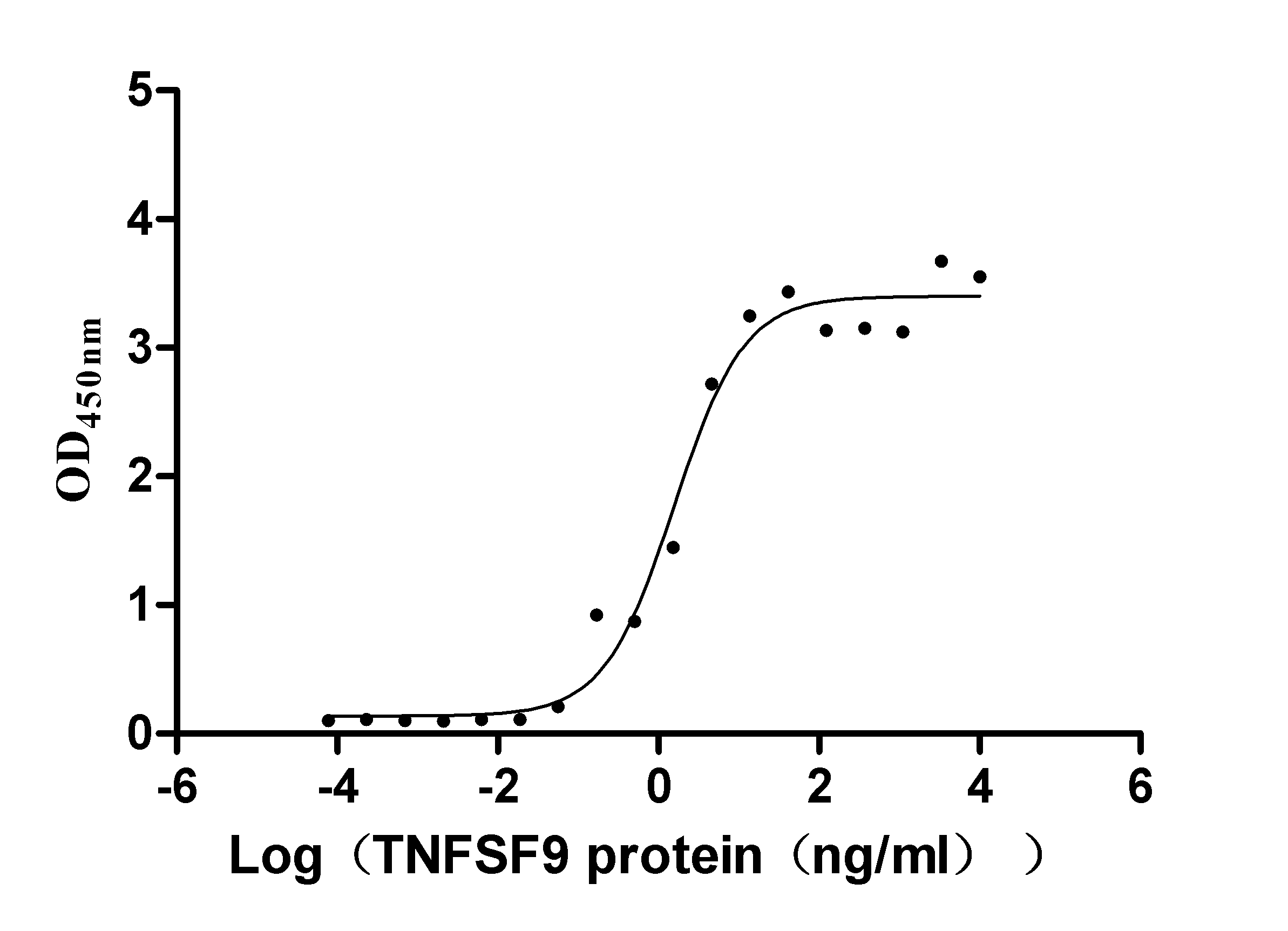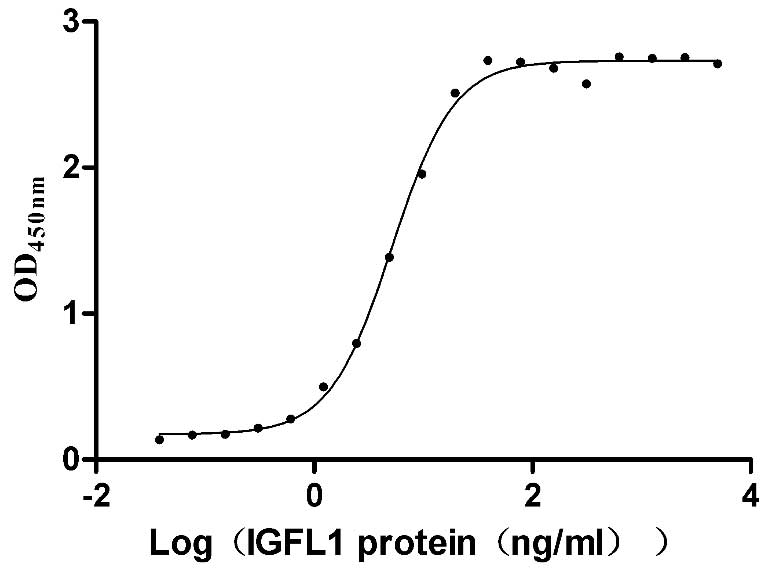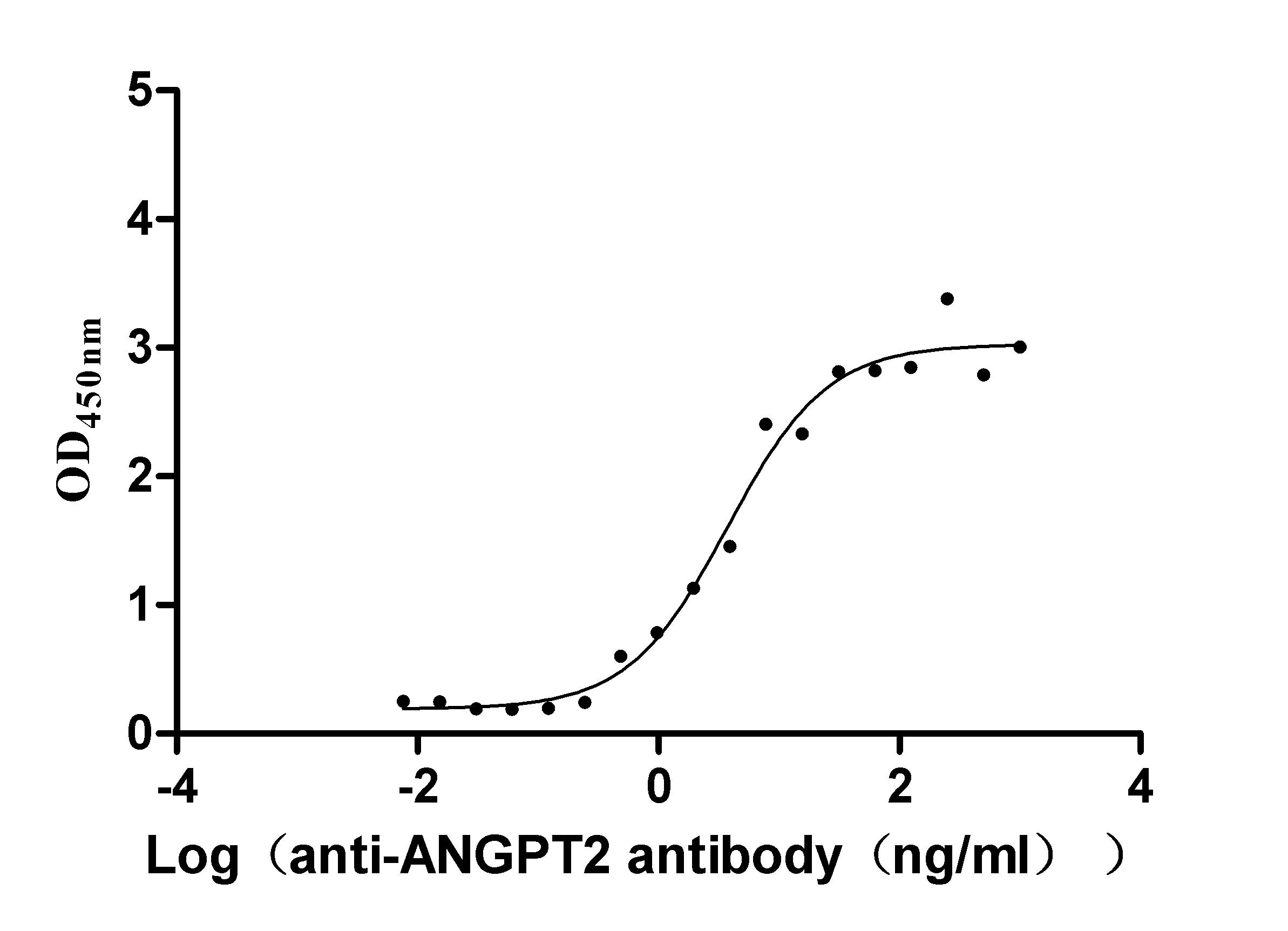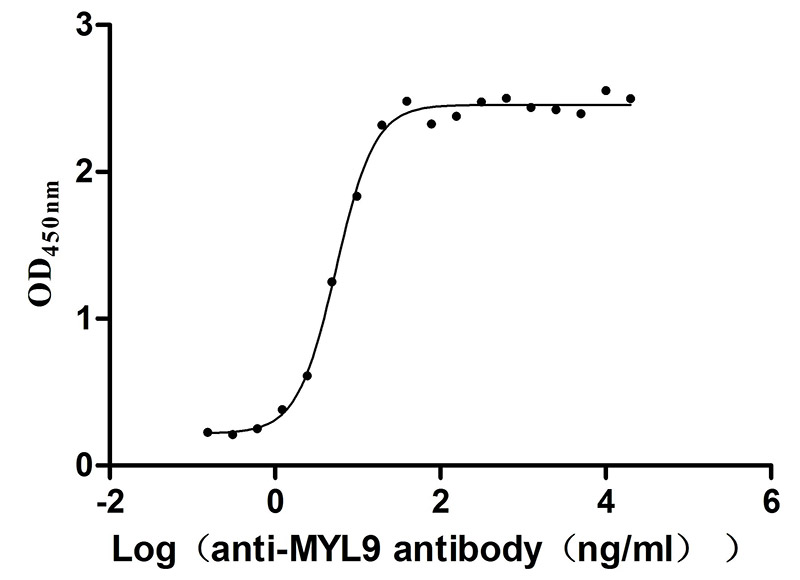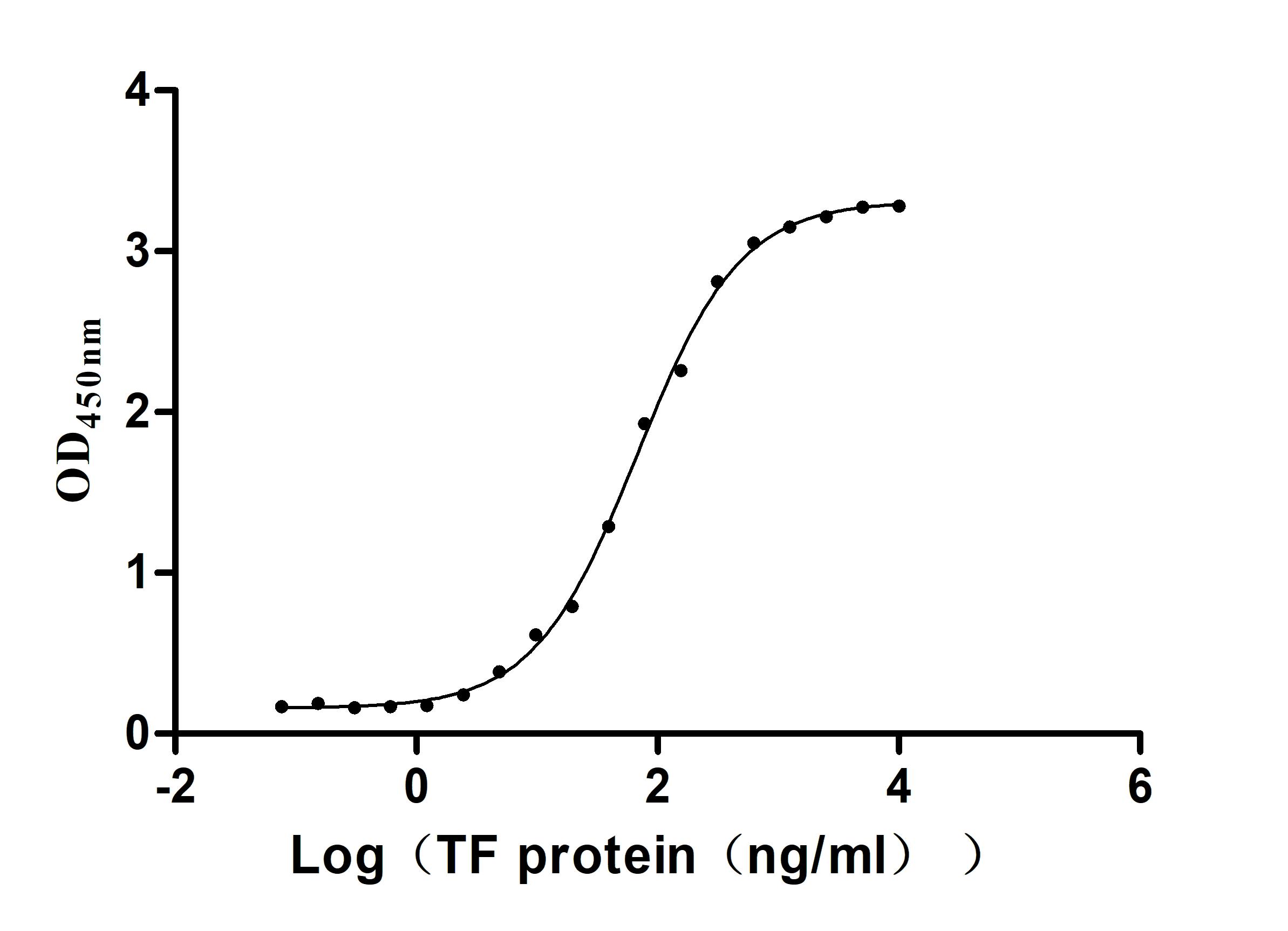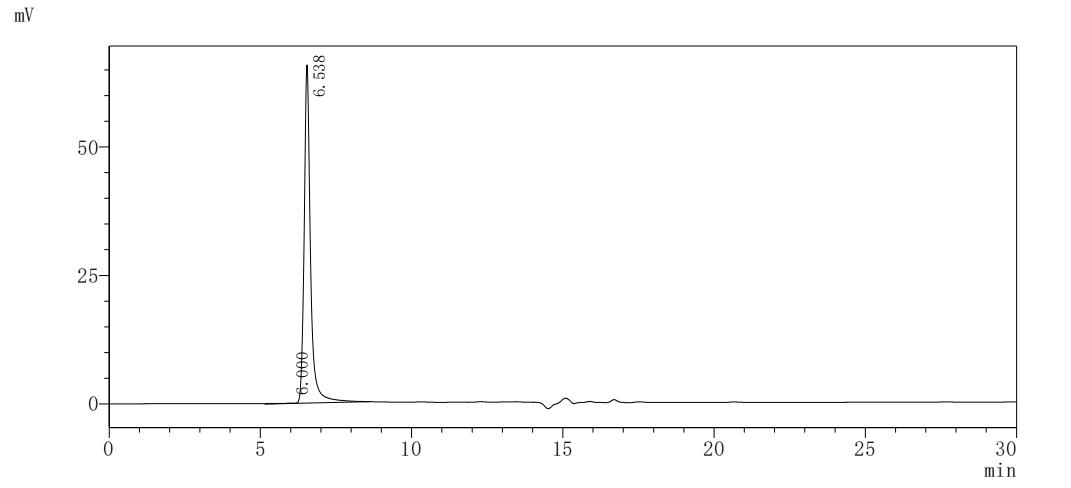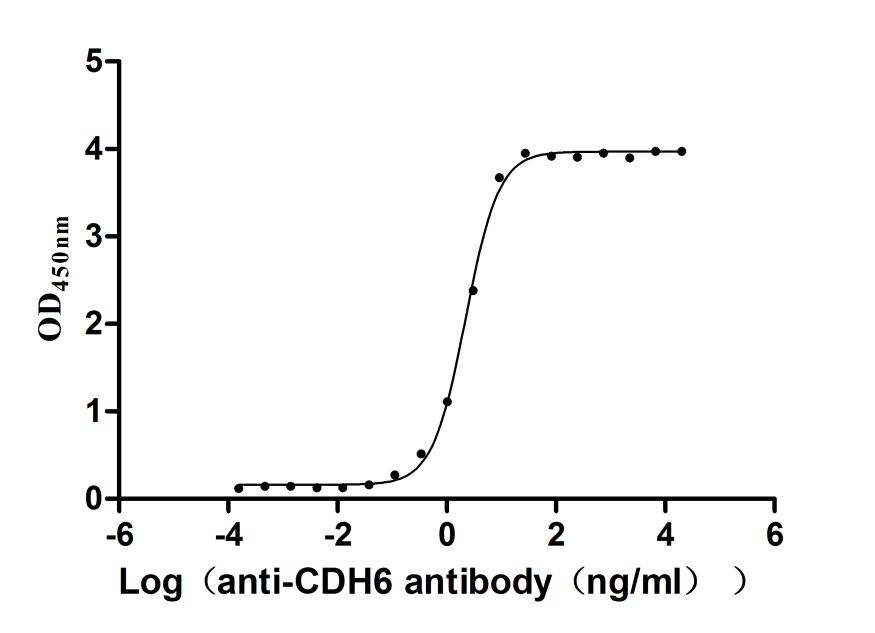Recombinant Human Saitohin (STH)
-
货号:CSB-YP022827HU
-
规格:
-
来源:Yeast
-
其他:
-
货号:CSB-EP022827HU-B
-
规格:
-
来源:E.coli
-
共轭:Avi-tag Biotinylated
E. coli biotin ligase (BirA) is highly specific in covalently attaching biotin to the 15 amino acid AviTag peptide. This recombinant protein was biotinylated in vivo by AviTag-BirA technology, which method is BriA catalyzes amide linkage between the biotin and the specific lysine of the AviTag.
-
其他:
-
货号:CSB-BP022827HU
-
规格:
-
来源:Baculovirus
-
其他:
-
货号:CSB-MP022827HU
-
规格:
-
来源:Mammalian cell
-
其他:
产品详情
-
纯度:>85% (SDS-PAGE)
-
基因名:STH
-
Uniprot No.:
-
别名:STH; Saitohin
-
种属:Homo sapiens (Human)
-
蛋白长度:full length protein
-
表达区域:1-128
-
氨基酸序列MSEGGGQVSC IFAAPTRLCR WPALIECGVN LTQPLCEWMI QVARDRTLSL AWEVASLLTL SSSEVGLEGV GTIWPSSYSS EESSRNGAEQ GRQLSIEGPF QGQNCPSHPA AALPLPMRGE SQATSCQV
-
蛋白标签:Tag type will be determined during the manufacturing process.
The tag type will be determined during production process. If you have specified tag type, please tell us and we will develop the specified tag preferentially. -
产品提供形式:Lyophilized powder
Note: We will preferentially ship the format that we have in stock, however, if you have any special requirement for the format, please remark your requirement when placing the order, we will prepare according to your demand. -
复溶:We recommend that this vial be briefly centrifuged prior to opening to bring the contents to the bottom. Please reconstitute protein in deionized sterile water to a concentration of 0.1-1.0 mg/mL.We recommend to add 5-50% of glycerol (final concentration) and aliquot for long-term storage at -20℃/-80℃. Our default final concentration of glycerol is 50%. Customers could use it as reference.
-
储存条件:Store at -20°C/-80°C upon receipt, aliquoting is necessary for mutiple use. Avoid repeated freeze-thaw cycles.
-
保质期:The shelf life is related to many factors, storage state, buffer ingredients, storage temperature and the stability of the protein itself.
Generally, the shelf life of liquid form is 6 months at -20°C/-80°C. The shelf life of lyophilized form is 12 months at -20°C/-80°C. -
货期:Delivery time may differ from different purchasing way or location, please kindly consult your local distributors for specific delivery time.Note: All of our proteins are default shipped with normal blue ice packs, if you request to ship with dry ice, please communicate with us in advance and extra fees will be charged.
-
注意事项:Repeated freezing and thawing is not recommended. Store working aliquots at 4°C for up to one week.
-
Datasheet :Please contact us to get it.
相关产品
靶点详情
-
基因功能参考文献:
- Saitohin Q7R polymorphism is associated with late-onset Alzheimer's disease susceptibility among caucasian populations. (Meta-analysis) PMID: 28211174
- Results showed a significant interaction effect of COMT and STH polymorphisms on cognitive performances, strengthening the involvement of STH in cognitive impairments, especially in the domains commonly impaired in schizophrenia PMID: 25283873
- The rs6203857 polymorphism of the saitohin gene is a genetic risk factor for Parkinson's disease. PMID: 25168738
- results of this meta-analysis suggested that MAPT_238bp/STH Q7R polymorphisms might modulate the risk of Parkinson's disease susceptibility PMID: 25305495
- These results suggest a possible contribution of STH gene products on the heterogeneity of core frontal executive functions deterioration in schizophrenia PMID: 22187337
- Single polymorphisms within the saitohin gene were associated with increased cognitive impairment and functional dependence persons with moderate-to-advanced Alzheimer disease. PMID: 21934306
- effect of Saitohin on Abl-mediated phosphorylation appears to be allele-specific, providing evidence for a new cellular function for STH PMID: 21769920
- STH polymorphisms play a possibly shared role with those of serotinin transporter 5-HTTLPR gene as a susceptibility factor for Alzheimer's disease and frontotemperal lobar dementia. PMID: 20852909
- Observational study of gene-disease association and gene-gene interaction. (HuGE Navigator) PMID: 20852909
- a gene within an intron of the tau gene; Q7R polymorphism appears to be over-represented in the homozygous state in late onset Alzheimer's disease subjects PMID: 12032355
- The saitohin Q allele, a novel determinant of tau H1 haplotypes, may represent a causative factor involved in the determinism of several tauopathies, e.g., frontotemporal dementia. PMID: 12447938
- At the STH gene only a common polymorphic change was found. PMID: 12826737
- Increased risk of Alzheimer's disease associated with the STH RR genotype is limited to late-onset Alzheimer's disease. PMID: 12826738
- The R allele of STH is associated with the H2 haplotype of tau; no correlation is found between R allele frequency and Alzheimer's or Parkinson's disease. PMID: 12932819
- Saitohin interacts with peroxiredoxin 6, a unique member of that family that is bifunctional and the levels of which increase in Pick disease. PMID: 16186110
- We found no evidence that could support a major pathogenic role of STH and TAU haplotype in AD, FTD or PD. PMID: 16909000
- Q allele of STH gene is over-represented in a tested group of patients with Huntington disease and might be considered a risk factor for HD like diseases. PMID: 18300012
- Homozygous Q/Q of STH Q7R polymorphism was the only one genotype found in either LOAD group or controls. No R allele was detected in LOAD and control groups. PMID: 18396294
- The Saitohin Q7R polymorphism is unlikely to contribute significantly to Alzheimer's disease susceptibility of the Han population in south China. PMID: 18850062
- Observational study of gene-disease association. (HuGE Navigator) PMID: 18850062
- Observational study of gene-disease association. (HuGE Navigator) PMID: 18509094
- Observational study of gene-disease association and gene-gene interaction. (HuGE Navigator) PMID: 18396294
- Observational study of genotype prevalence. (HuGE Navigator) PMID: 18300012
- Observational study of gene-disease association and gene-gene interaction. (HuGE Navigator) PMID: 18307033
- Observational study of gene-disease association and gene-gene interaction. (HuGE Navigator) PMID: 15136700
- Observational study of gene-disease association. (HuGE Navigator) PMID: 16603077
- Observational study of gene-disease association. (HuGE Navigator) PMID: 16909000
显示更多
收起更多
-
亚细胞定位:Cytoplasm. Nucleus.
-
组织特异性:Highest expression in placenta, muscle, fetal brain, and adult brain, with lower expression in heart, kidney, stomach, testis, and adrenal gland. In the central nervous system, highest expression is in temporal lobe, hypothalamus, medulla and spinal cord,
-
数据库链接:
HGNC: 18839
OMIM: 607067
KEGG: hsa:246744
STRING: 9606.ENSP00000443168
UniGene: Hs.661831
Most popular with customers
-
Recombinant Human Tumor necrosis factor receptor superfamily member 9 (TNFRSF9), partial (Active)
Express system: Mammalian cell
Species: Homo sapiens (Human)
-
Recombinant Human IGF-like family receptor 1 (IGFLR1), partial (Active)
Express system: Mammalian cell
Species: Homo sapiens (Human)
-
Recombinant Dog Angiopoietin-2 (ANGPT2) (Active)
Express system: Mammalian cell
Species: Canis lupus familiaris (Dog) (Canis familiaris)
-
Recombinant Human Zymogen granule protein 16 homolog B (ZG16B) (Active)
Express system: Mammalian cell
Species: Homo sapiens (Human)
-
Recombinant Human Myosin regulatory light polypeptide 9 (MYL9) (Active)
Express system: Yeast
Species: Homo sapiens (Human)
-
Recombinant Human Serotransferrin(TF) (Active)
Express system: Mammalian cell
Species: Homo sapiens (Human)
-
Recombinant Human C-C chemokine receptor type 9 (CCR9)-VLPs (Active)
Express system: Mammalian cell
Species: Homo sapiens (Human)
-
Recombinant Macaca fascicularis Cadherin 6(CDH6),partial (Active)
Express system: Mammalian cell
Species: Macaca fascicularis (Crab-eating macaque) (Cynomolgus monkey)


